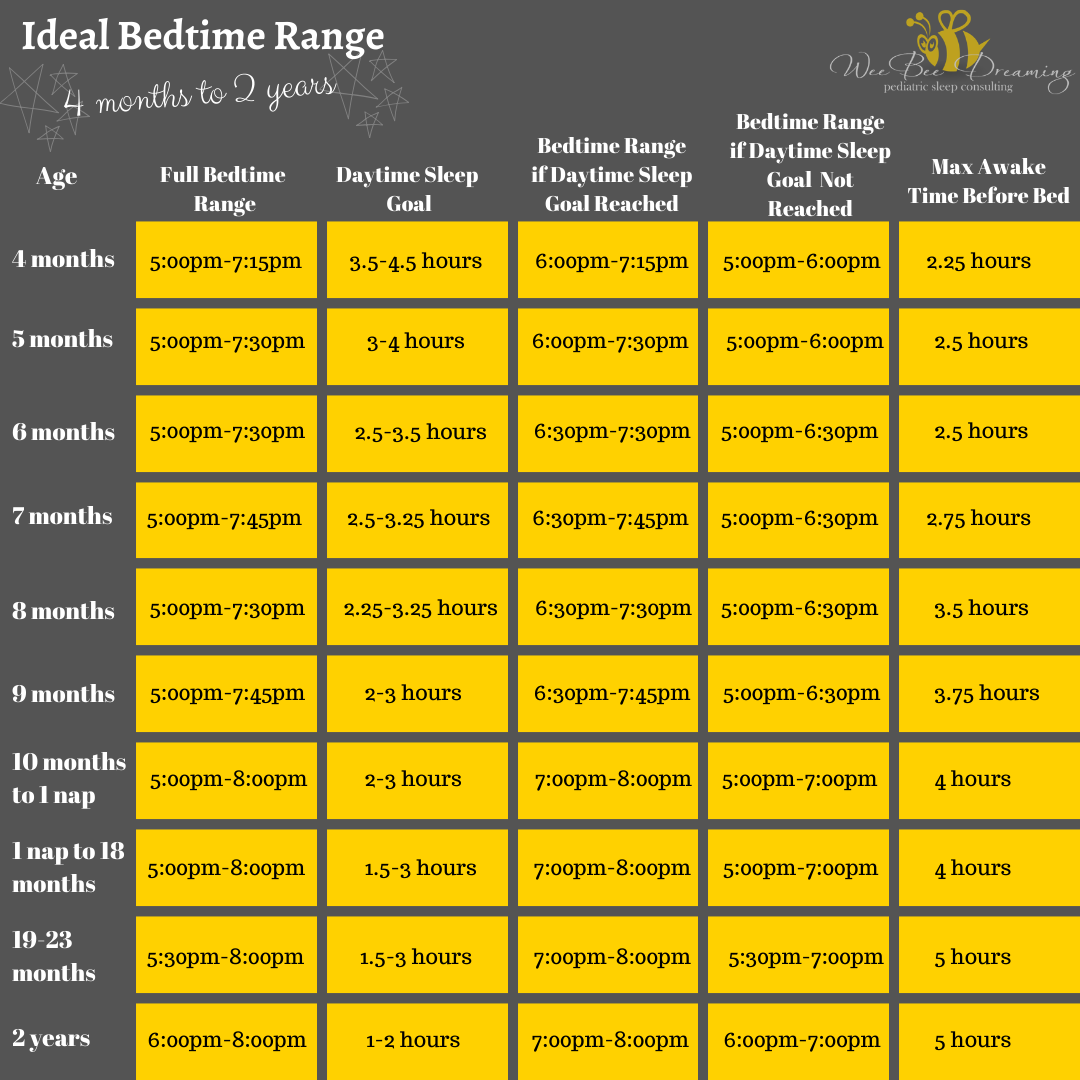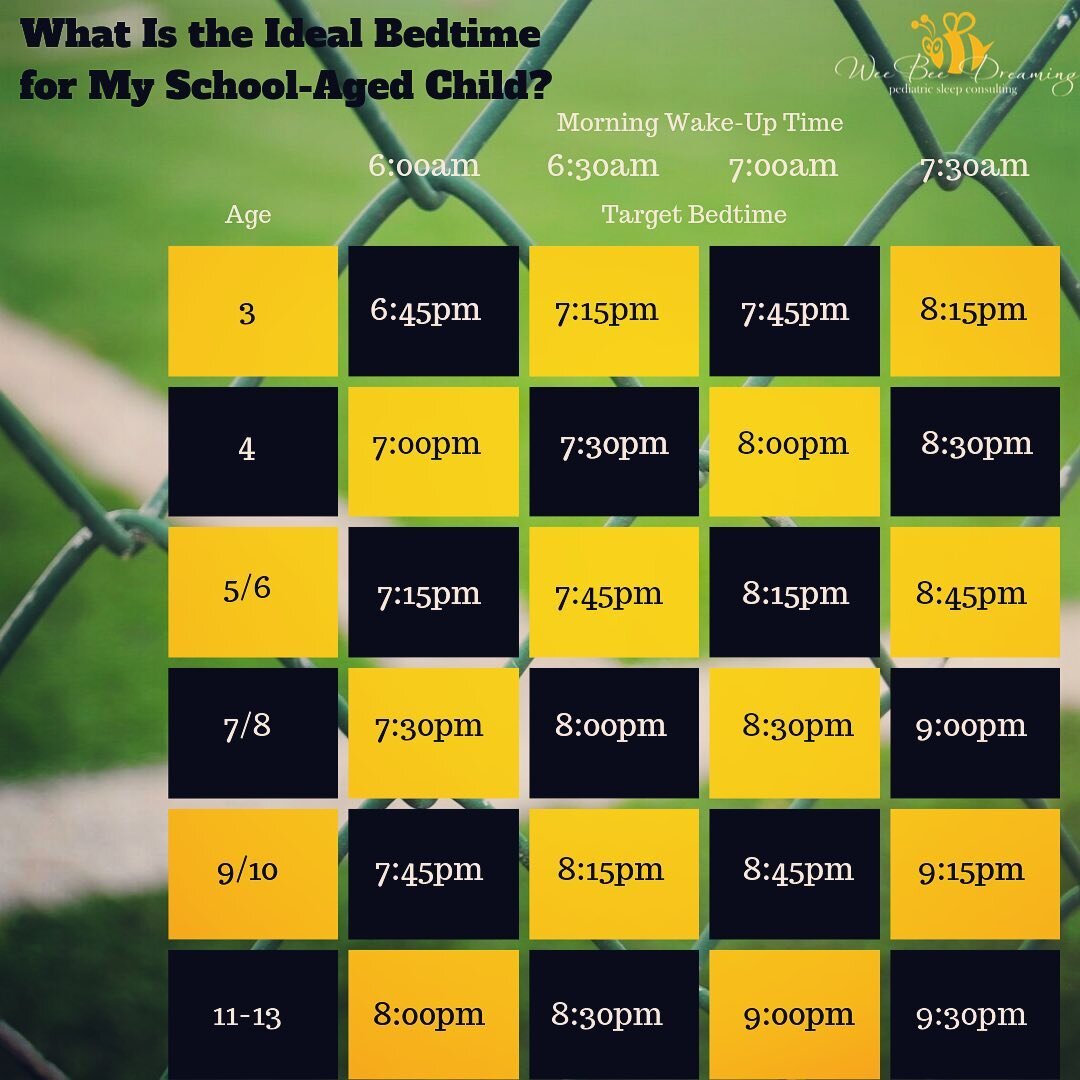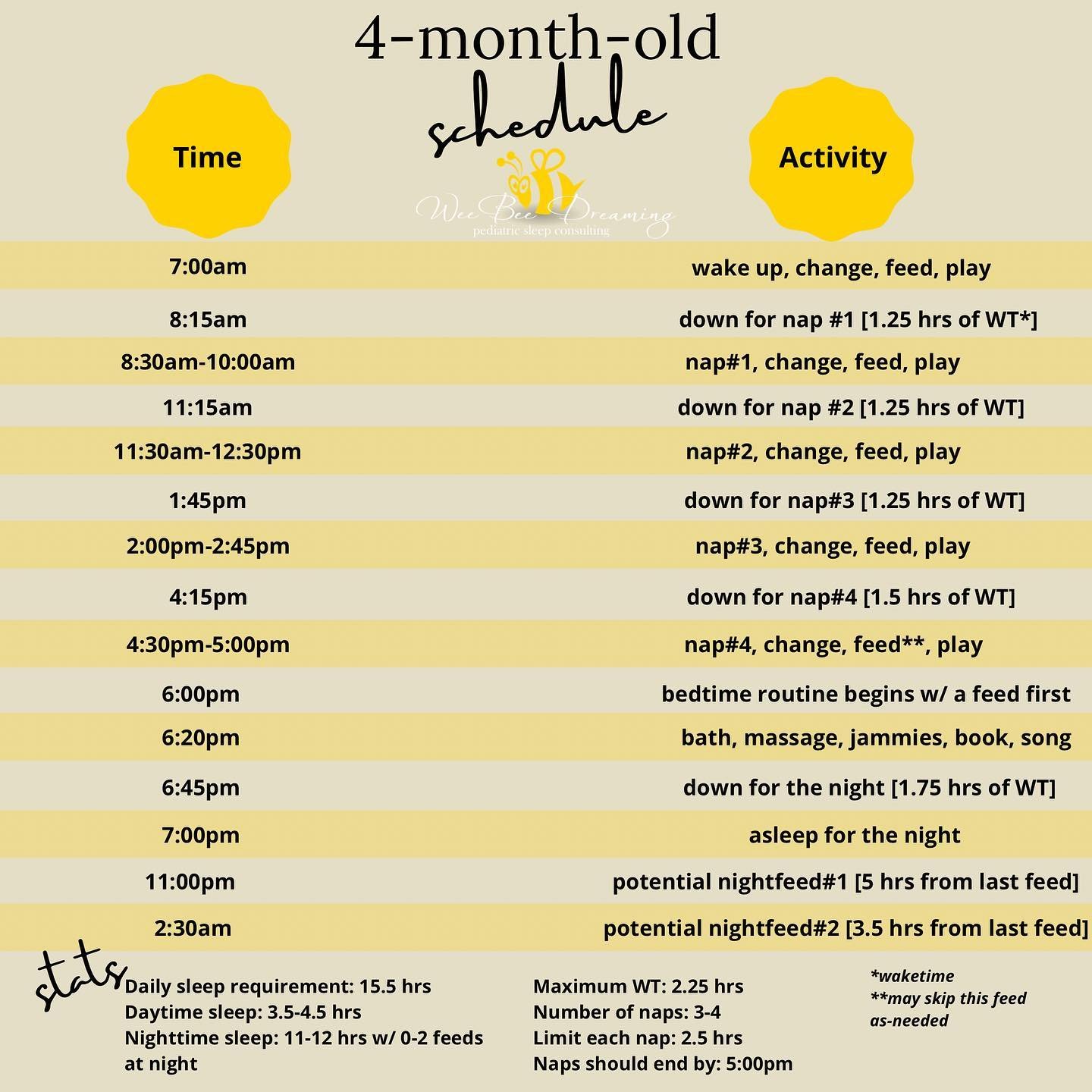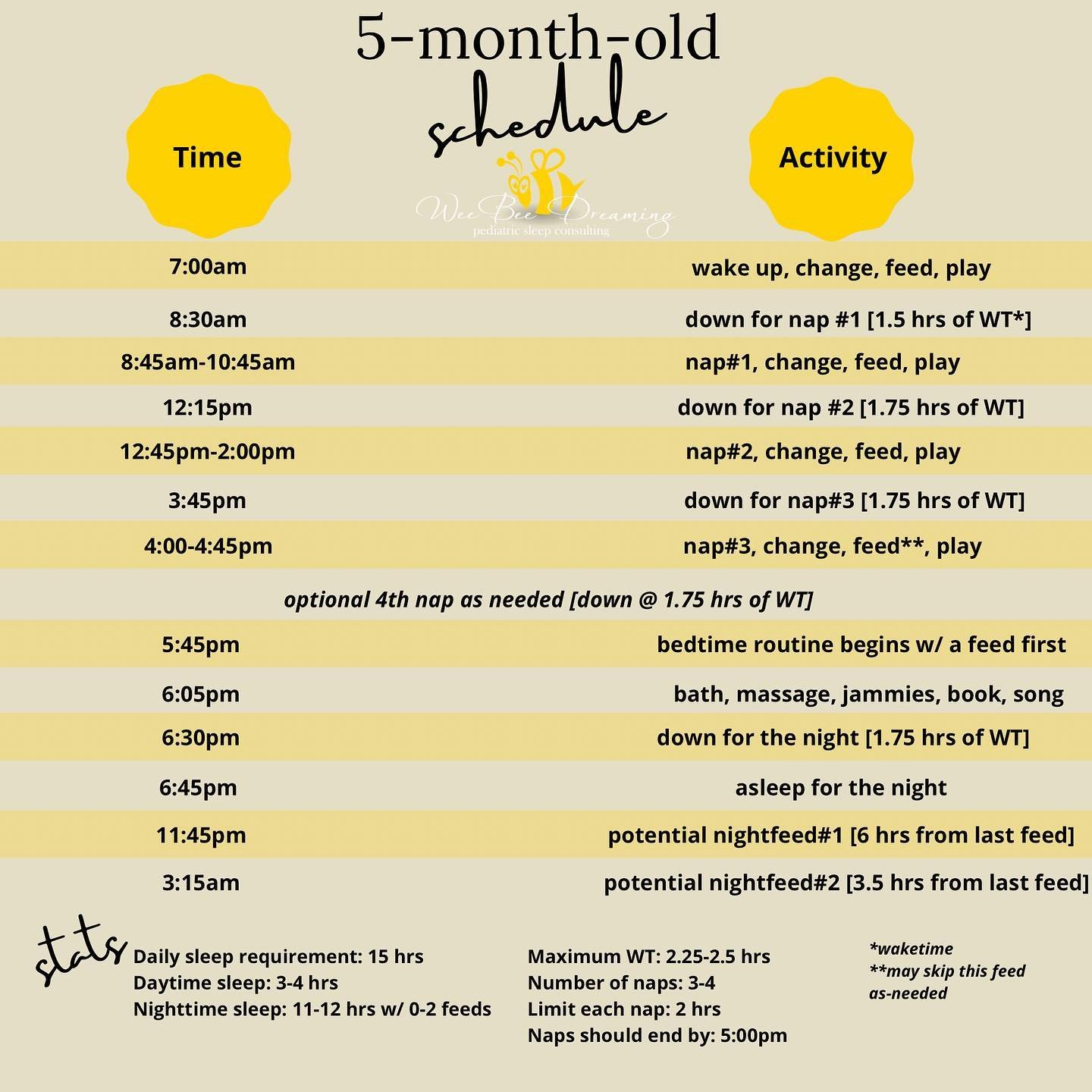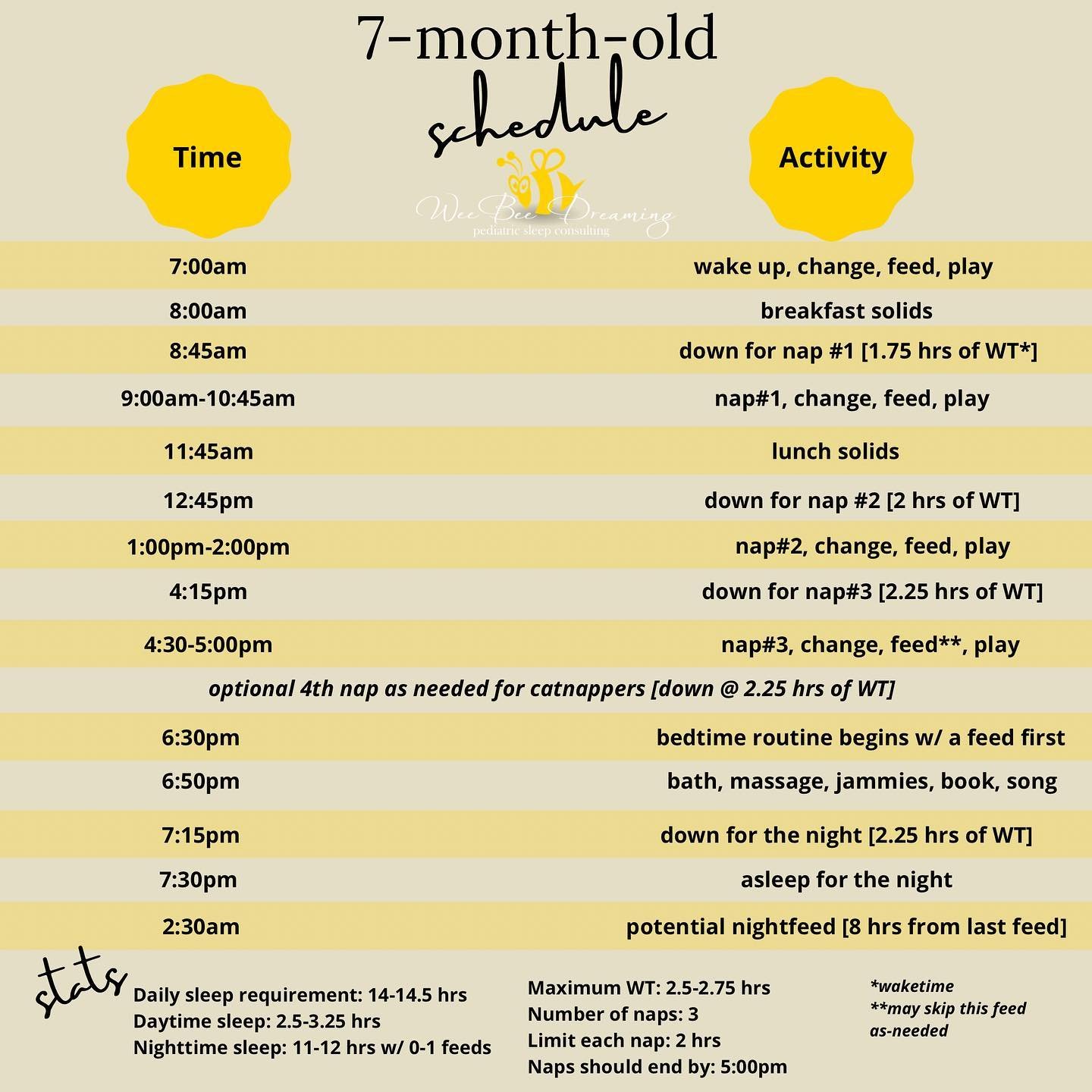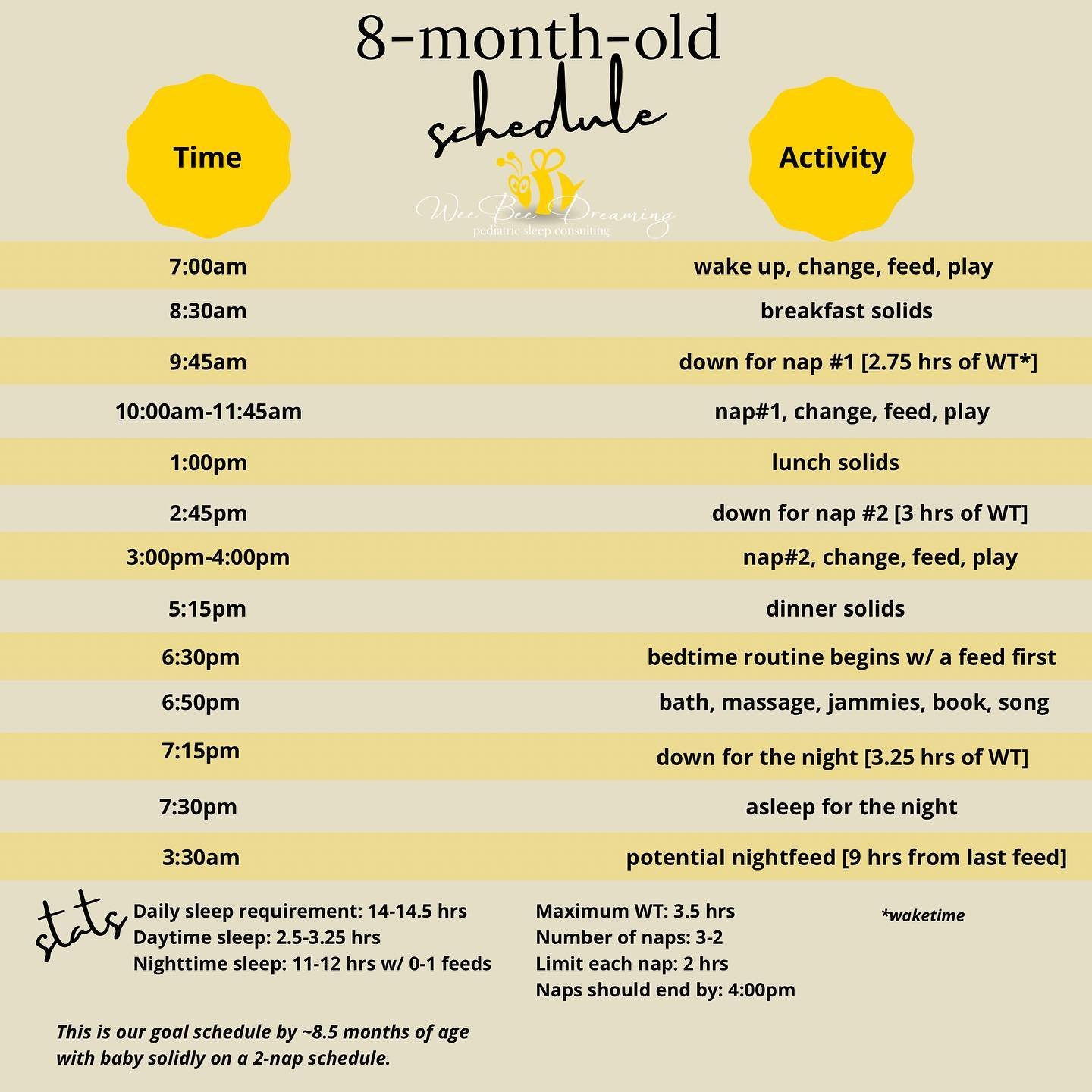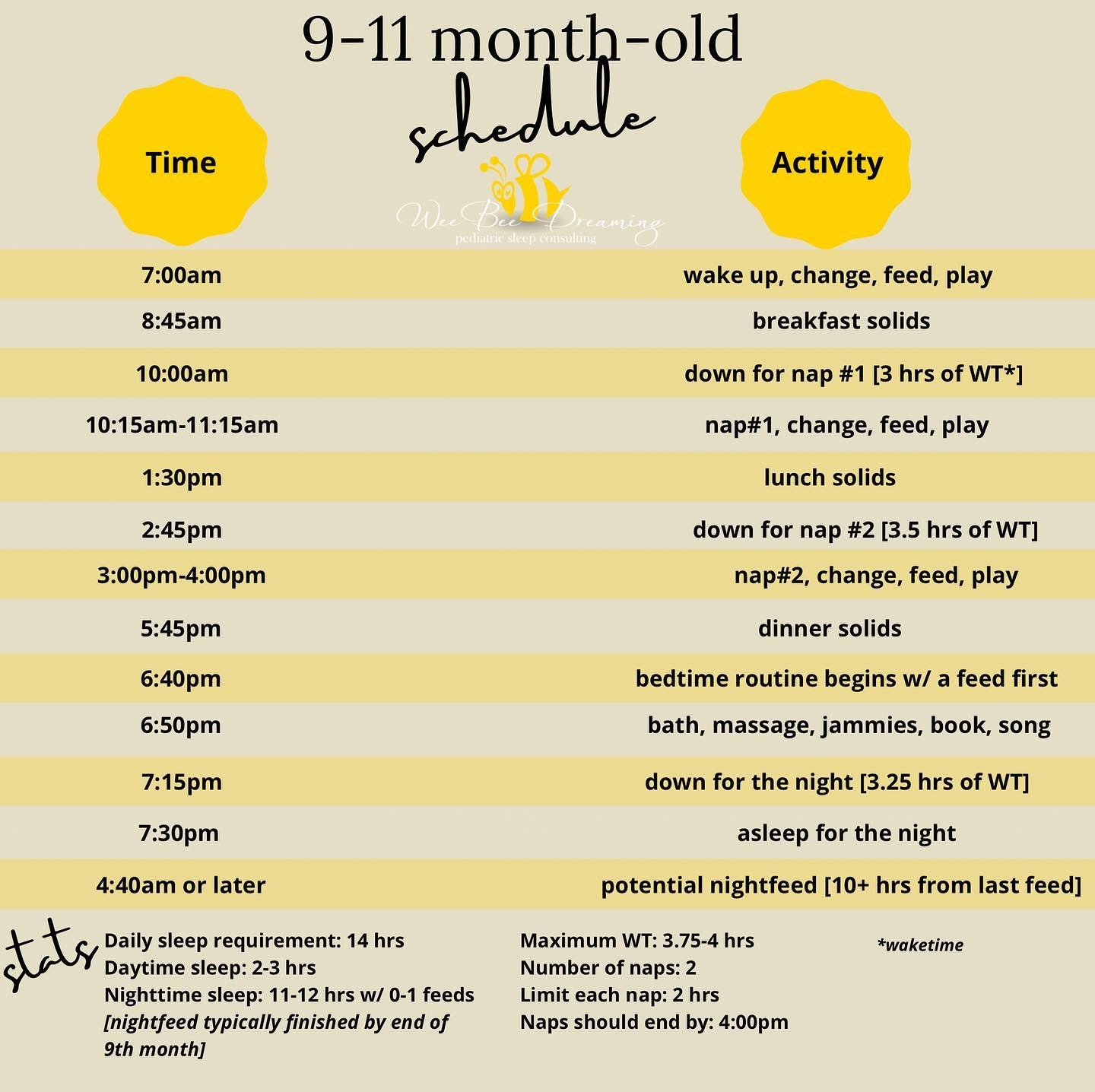Ah the age-old question that can stump parents in the evening – should I put my baby down for another nap or should I be using an early bedtime instead? Both of these are useful in their own right, but it can be difficult to decide which is best in each instance. This post is meant to help you decide whether it makes more sense to aim for a long night of sleep or whether sneaking in another nap is the right choice.
How early is an ‘early’ bedtime?
While an early/late bedtime can be a bit subjective depending on your baby’s current schedule, a typical ‘average’ bedtime for a baby 16 weeks and up is usually anywhere between 6:00-8:00pm. To be super technical, what I would define as ‘early’ would be:
For a baby 16 weeks and up that is waking up 2+ times/night for a feed,
early = before 6:00pm
For a baby 16 weeks and up that is waking up 1 time/night for a feed,
early = before 6:30pm
For a baby 16 weeks and up that is not waking at night for a feed,
early = before 7:00pm
How late is a ‘late’ nap?
While naps are extremely important for a baby’s mental/physical development, nighttime sleep is far superior. While there are times when it makes sense to sneak in a late nap, for the most part we don’t want naps interfering with a good night of sleep. This means that it’s important that naps aren’t running too late in the day, thus pushing bedtime too late and robbing baby of a potential full night of sleep. So in terms of how late of a nap I would allow for, this is the rule I’d follow:
For a baby between 3-4 months, a late nap should end by 6:00pm
For a baby between 4-8 months, a late nap should end by 5:30pm
For a baby 9 months and up, a late nap should end by 4:30pm
How do I decide whether to use an early bedtime or a late nap?
Now the tricky part – when does it make sense to aim for an early bedtime and when does it make sense to try for a late nap? There are many considerations to take, but these are the big ones:
1) What did daytime sleep look like? Was the daytime nap goal achieved?
2) What time did baby’s last nap end? Is it a stretch even to an early bedtime?
3) How successful are these late naps and is there a high chance baby will refuse the nap?
4) How is baby’s mood? Is baby at a sleep deficit?
5) When was bedtime last night and the night before?
1) What did daytime sleep look like? Was the daytime nap goal achieved? How many hours of sleep does baby need tonight?
Simply put, if your baby had a crummy day of naps, an early bedtime may be your best bet. Essentially, in a 24 hour period, every baby has a certain number of hours in their ‘sleep bank’. If your child did not use many hours in this ‘bank’ during the day, the goal would be for them to be given the opportunity to achieve the rest of the hours at night.
For example, let’s consider a 5 month old baby with average sleep needs [15 hours/day]. If baby had a lousy day of naps [let’s say three 30 minute naps, totaling 1.5 hours of daytime sleep] they would have 13.5 hours left in their ‘bank’ [15 – 1.5 = 13.5] for the night. Let’s also consider that this baby is currently waking for 2 feeds/night, and at around 30 minutes of awake time/feed, that’s 1 hour of awake time in the middle of the night. So in order for baby to clock 13.5 hours of sleep, they’d essentially need to be in bed for 14.5 hours. If this baby were to go to bed at 7:00pm, they’d need to sleep until 9:30am to clock enough sleep [not likely and not recommended!] but if parents were to utilize an early bedtime on this day [let’s say 5:45pm] it’s very possible/likely that this child will be able to sleep from 5:45pm until at least 6:00-7:00am, if not later, and clock a great night of sleep, waking up rested and ready to take some better naps!
2) What time did baby’s last nap end? Is it a stretch even to an early bedtime?
I find that often, when an early bedtime fails, it is not because bedtime was too early and baby treated it like a nap, it’s because while bedtime was perhaps earlier than usual, it still isn’t early enough. For example, if we have a 5 month old baby that usually has a bedtime around 7:00pm but after a weird day of naps the 3rd nap ends at 3:00pm, his parents realize that 7:00pm is going to be a really big stretch [4 hours]. So instead, they decide to pull baby’s bedtime earlier, to 6:00pm. Baby falls asleep quickly at 6:00pm but then wakes screaming at 6:30pm. Parents assume baby has treated bedtime like a nap, waking after only 30 minutes. But, what’s likely happened is that while bedtime was earlier, it wasn’t early enough, as baby still ended up being awake for 3 hours before bedtime, which is too long for their age. In actuality, following along with the proper bedtime waketime [see chart above!], bedtime should have been closer to 5:00-5:30pm.
So, one thing you’ll want to consider with an early bedtime vs. late nap is whether getting them down for a proper early bedtime [i.e., one that isn’t too long of a stretch] is even feasible. If it’s going to be a stretch even to an early bedtime, you may want to consider adding in another nap [so in this example, we could have done an extra nap from 5:00-5:30pm with a bedtime around 7:30pm].
Here is a guideline for whether you may want to consider adding in an extra nap:
3 months of age: last nap ended much earlier than 4:00pm
4 months of age: last nap ended much earlier than 3:45pm
5/6 months of age: last nap ended much earlier than 3:30pm
7 months of age: last nap ended earlier than 3:45pm
8 months of age: last nap ended earlier than 3:00pm
9 months of age: last nap ended earlier than 2:45pm
10+ months of age: last nap ended earlier than 2:30pm
**this is of course considering how the rest of baby’s day went and how much sleep is required at nighttime!
3) How successful are these late naps and is there a high chance baby will refuse the nap?
You know your baby best and how much success you often have with sneaking in these late naps. I often call these naps ‘rescue naps’ because the goal with them is to try and ‘rescue’ bedtime. For these rescue naps, even for a fully sleep trained baby, we can use any available strategy to try and get them to sleep. Car, stroller, carrier, feed to sleep, hold to sleep, pacifier – anything goes! With these late naps, we are often trying to ‘force’ sleep and the awake time before these rescue naps can be quite short. Some babies won’t go for the rescue nap no matter how much we try and for these babies, we can always try the crib and see how it goes [and even if they don’t sleep, we can call it ‘quiet time’ and it can often help us successfully get to at least a slightly later bedtime]. This is the usual timeline I follow to determine whether we should try a proper crib nap or whether a rescue nap makes sense:
For a baby between 3-4 months: if you can put down for a nap at 4:45pm or earlier [using your usual timing] for the last nap, try the crib. If the put down, according to your schedule, should be past 4:45pm, try a rescue nap from 5:00-5:30pm instead. If they fall asleep, let them sleep for 30 minutes and then wake them up, proceeding with bedtime as usual. If they don’t sleep, abandon ship at 5:30pm and aim to have them down for the night at 6:00pm.
For a baby between 4-8/9 months: if you can put down at 4:15pm or earlier [using your usual timing] for the last nap, try the crib. If the put down, according to your schedule, should be past 4:15pm, try a rescue nap from 4:30-5:00pm instead. If they fall asleep, let them sleep for 30 minutes and then wake them up, proceeding with bedtime as usual. If they don’t sleep, abandon ship at 5:00pm and aim to have them down for the night at 5:30pm.
For a baby 9/10 months and up: if you can put down at 3:45pm or earlier [using your usual timing] for the last nap, try the crib. If the put down, according to your schedule, should be past 3:45pm, try a rescue nap from 3:30-4:00pm instead. If they fall asleep, let them sleep for 30 minutes and then wake them up, proceeding with bedtime as usual. If they don’t sleep, abandon ship at 4:00pm and aim to have them down for the night according to the chart below:
4) How is baby’s mood? Is baby at a sleep deficit?
What your baby’s mood is like in the evening can be a great way to determine whether it makes sense to try another nap or not. If they are very fussy around the time you would be attempting a rescue nap [as per above] it is certainly worth a try. Without the rescue nap, by the time your early bedtime rolls around they will likely be very overtired, and if baby is overtired going into the night, it can lead to bedtime battles, nightwakings, sleep-cries, and early wake-ups.
The other consideration is whether your baby is at a sleep deficit. Perhaps they have been sick and waking up a lot more than usual or you have just returned from some travel where sleep was off [or there is jet-lag to clear]. The best way to catch up on missed sleep is with a long night of sleep, so a few early bedtimes could be your best bet.
5) When was bedtime last night and the night before?
I am all for tossing in the occasional early bedtime when it’s needed. I think it’s a great way to catch up on missed sleep and set baby up for a better day of naps the following day [sleep begets sleep!] But I do not think relying on an early bedtime day after day is a) ideal and b) feasible for most families. This is why I would consider how many early bedtimes you’ve used and if you are coming up on the 3rd early bedtime in a row, you may want to consider adding in an extra nap + later bedtime to mix things up a bit. The issue with relying on early bedtimes too heavily is getting stuck in an early bedtime/early wake-up cycle that can be difficult to crawl out of depending on how long you’ve been living in it. If you’ve found yourself in this cycle for a week or longer, you may have to consider a schedule shift to get your baby back on track.
It can be challenging to decide what’s best at the end of the day when we’re up against an early bedtime or a late nap. A lot of baby sleep is very trial and error and with practice [and keeping a sleep log to see patterns!] you will get to know which option works best for your baby. And as always, if you are struggling with bedtimes, early wake-ups, or figuring out what schedule works best for your baby, please do not hesitate to reach out to me for help!
Pam Edwards is a Certified Infant & Child Sleep Consultant and founder of Wee Bee Dreaming Pediatric Sleep Consulting, based out of Kamloops, B.C. Healthy sleep is addicting and she has made it her life mission to help families all across the world get the sleep they deserve - a good night's sleep doesn't have to be a dream!




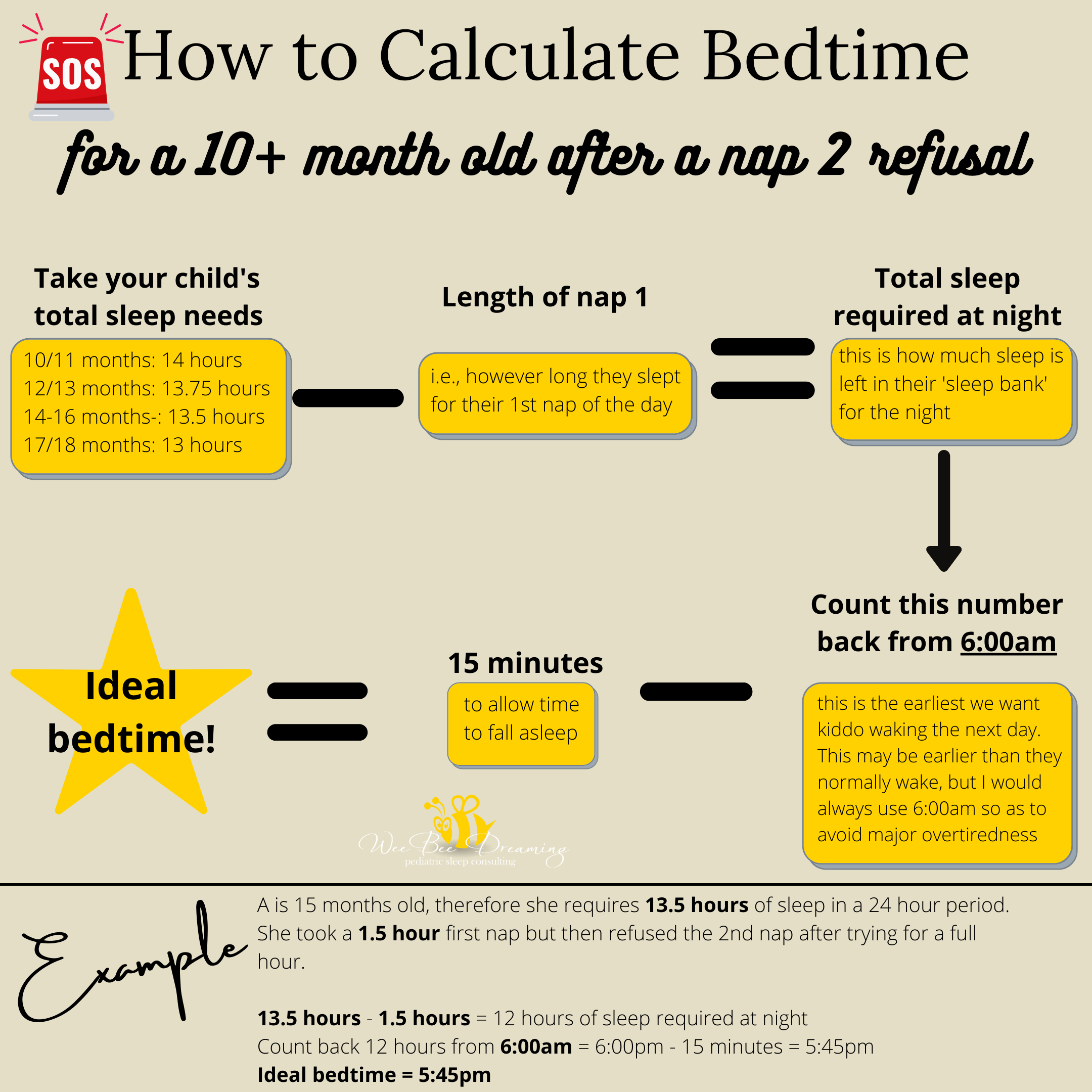

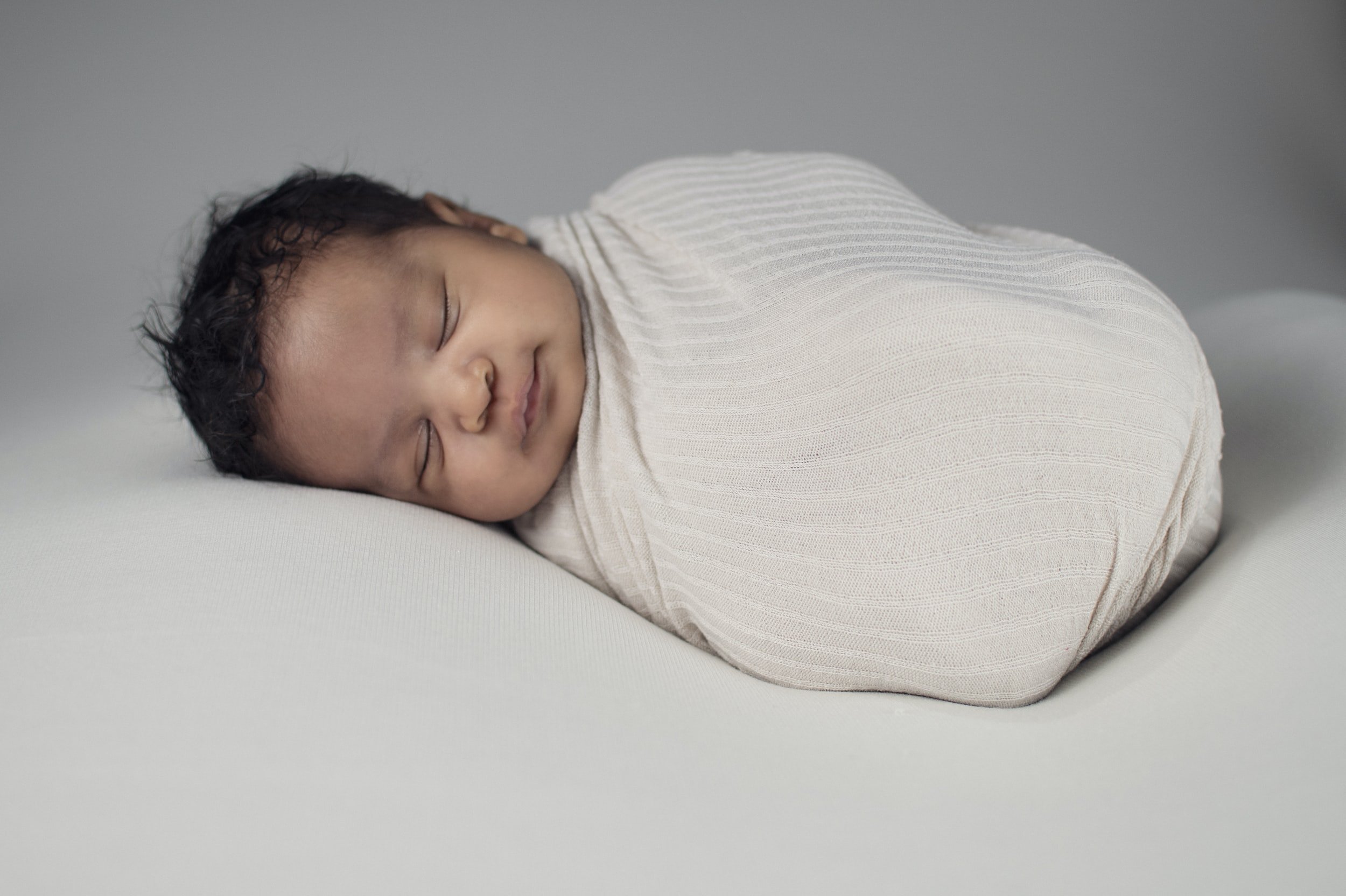
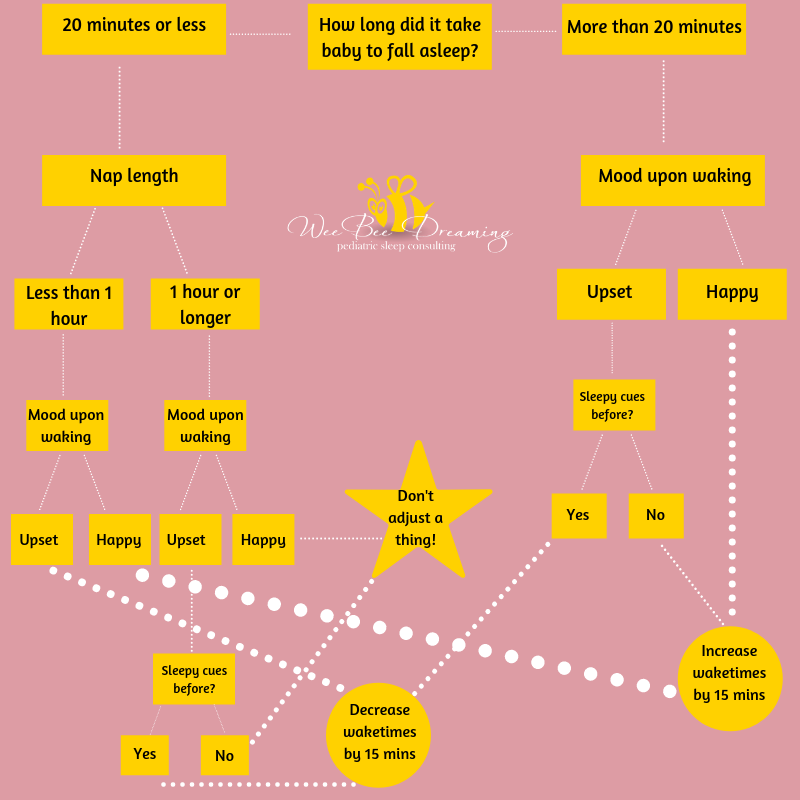


![BACK TO SCHOOL! 📚 🍎
While there is a lot of uncertainty in our house with school this year [as I'm sure most families are experiencing!] one thing for certain is that we've got to scale back our ☀️summer bedtimes☀️ for back to school next week!](https://images.squarespace-cdn.com/content/v1/52531afee4b0f4b1f8aa79be/1601470556866-QORB0LBNG8Q204V7Y50N/image-asset.jpeg)

![CONTEST CLOSED⭐️GIVEAWAY/REVIEW!⭐️
I may have found my new favorite sound machine - introducing the SNOOZ!
Why do I ❤️love❤️ it so much?
🎵Lately I've been a big fan of pure #whitenoise [i.e. not an audio track] and the @snooz has a re](https://images.squarespace-cdn.com/content/v1/52531afee4b0f4b1f8aa79be/1601507619148-KSB6PM01DMX88BN903PG/image-asset.jpeg)
![DREAMFEEDING! 🌙 🍼
I've never done a DF with any of my kids [mainly because as babies I felt I worked so hard to get them to sleep, I'd be darned if I was going to risk waking them up!] but I've seen it work amazingly well for families I'm worki](https://images.squarespace-cdn.com/content/v1/52531afee4b0f4b1f8aa79be/1601507619148-1CJQR7LI3HD59XAKDBJK/image-asset.jpeg)














